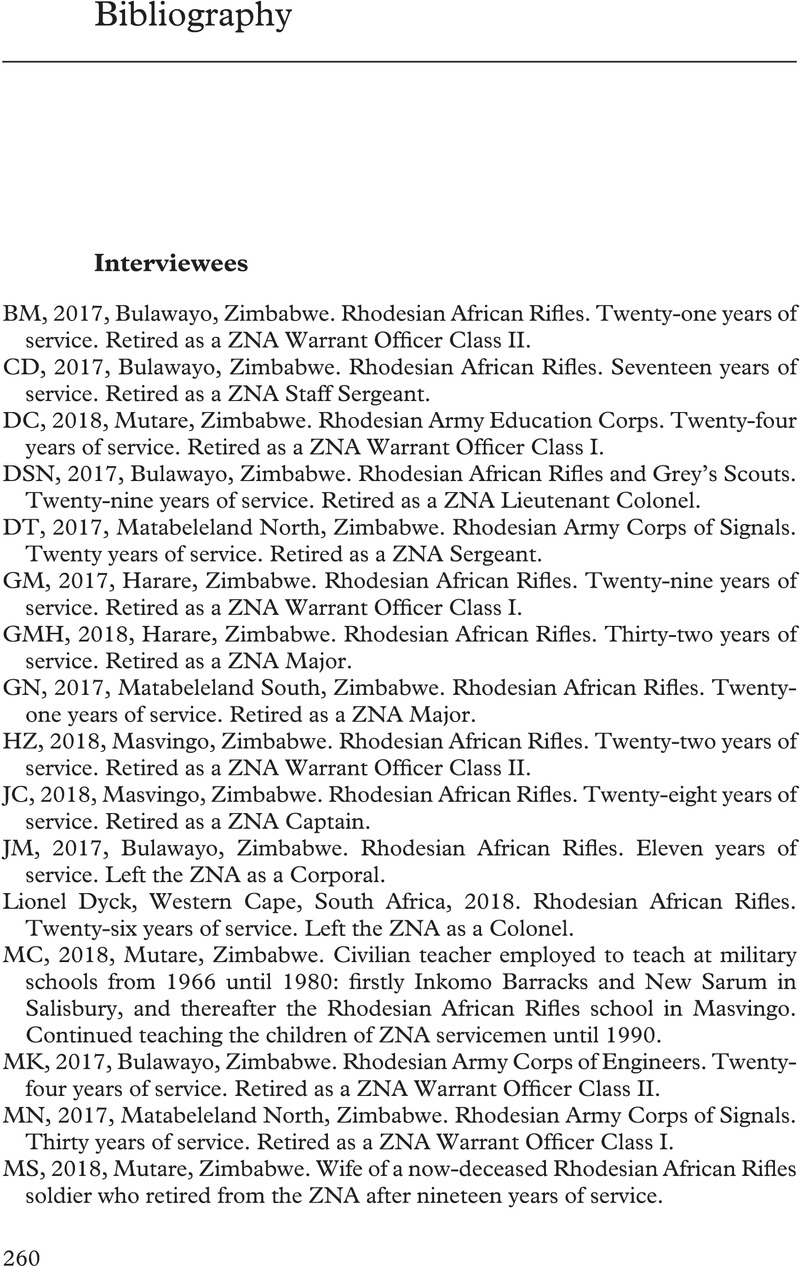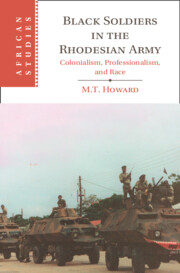Book contents
- Black Soldiers in the Rhodesian Army
- African Studies Series
- Black Soldiers in the Rhodesian Army
- Copyright page
- Dedication
- Epigraph
- Contents
- Figures
- Preface
- Acknowledgements
- 1 Introduction
- 2 The Creation of Black Rhodesian Soldiers’ Regimental Loyalties
- 3 ‘The Rhodesian Army Was the Best in Everything’
- 4 Racism and Soldierly Loyalty During the War
- 5 The Impact of the War upon Soldierly Loyalties
- 6 ‘They Just Follow the Government of the Day’
- 7 A New ‘Government of the Day’ Dawns
- Conclusion
- Bibliography
- Index
- African Studies Series
- References
Bibliography
Published online by Cambridge University Press: 01 February 2024
- Black Soldiers in the Rhodesian Army
- African Studies Series
- Black Soldiers in the Rhodesian Army
- Copyright page
- Dedication
- Epigraph
- Contents
- Figures
- Preface
- Acknowledgements
- 1 Introduction
- 2 The Creation of Black Rhodesian Soldiers’ Regimental Loyalties
- 3 ‘The Rhodesian Army Was the Best in Everything’
- 4 Racism and Soldierly Loyalty During the War
- 5 The Impact of the War upon Soldierly Loyalties
- 6 ‘They Just Follow the Government of the Day’
- 7 A New ‘Government of the Day’ Dawns
- Conclusion
- Bibliography
- Index
- African Studies Series
- References
Summary

- Type
- Chapter
- Information
- Black Soldiers in the Rhodesian ArmyColonialism, Professionalism, and Race, pp. 260 - 280Publisher: Cambridge University PressPrint publication year: 2024



